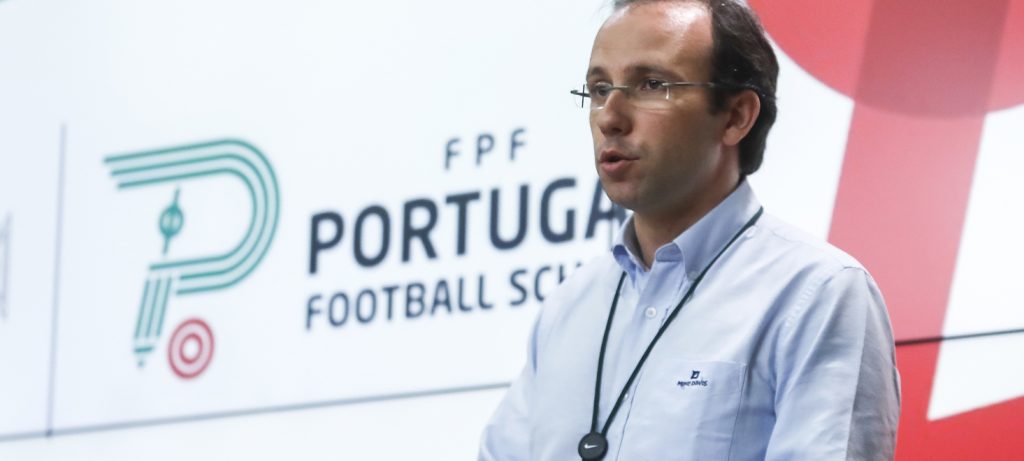A Federation For The Future

Portugal Football School forms part of the research and development unit of FPF and its main activities are research in football, futsal and beach soccer, as well as the education and training of stakeholders with responsibility in the development and promotion of football at local, district and national competitions and guarantee the development of football in Portugal.
FPF overseas the management of 22 national teams across football, futsal and beach soccer, and organises 32 annual competitions. Currently, Portugal has 215,000 registered football players but through their investment in the university, FPF are also developing a pool of talented individuals equipped with the skills and knowledge to help further grow the federation across all business and playing functions. But crucially, the money they are generating from graduate and postgraduate fees is being used to deliver basic courses for officials of small clubs across the country to help improve knowledge in football administration.
“In football, coaches and referees need to be well educated, but what about the presidents?” Craveiro said. “How can we develop small clubs so that they can perform better if we don’t educate the people that are working in the offices? That is why we developed our university.”
Efforts are also being focused on developing expertise around media and how it’s produced and consumed. Craveiro questioned the way football is delivered and watched by today’s fans, stating: “Fans seem to only be interested in top-tier competitions. Is this really the case? People are very engaged but what really sells is the journey, not the destination.”
1st August saw the launch the federation’s own cable TV station, Canal 11. Produced at the City of Football complex, the channel will provide a platform to show over 600 live matches per season from their national youth, women’s, beach and futsal teams.
It’s an interesting tactic and one without risk which Craveiro counters. “People tell me ‘you are going to compete with other TV?’ and I say we will not,” he said noting the failings of sports coverage by traditional broadcasters.
“In the seven years that I have been with the association they [the broadcasters] have never brought me the content I will air on Canal 11. They have never brought me an u19s match, they never brought me the women’s u17s, or a match from beach soccer or futsal. We will air these matches and we will sell the journey of the players.”
The player’s journey is crucially important to the idea behind the channel and one that will be nurtured by the federation’s production team.
“I can do what I can never ask a commercial TV provider to do and that is to take care of these stories, these people and impress our fans about these journeys.
“We could always spend the same amount we are going to spend on the TV channel with marketing campaigns, but we felt we live in a world where the content in this industry is the best marketing weapon that we have. There is no campaign that is better than the football pitch. So we are investing in that and will shine a light on them.”
On 17th March, 1999, the NBA in the US launched its own cable TV channel dedicated entirely to providing basketball fans with regular and unique content as well as live games attracting over 50 million subscribers. During the 2017-18 season, NBA programming reached more than 1 billion unique viewers and more than 35% of visitors to NBA.com coming from outside North America. A recent NBA game in London was broadcast in 215 countries, and in 34 languages. The success of NBA TV leaves Craveiro with one question: “How come football never did this?”




